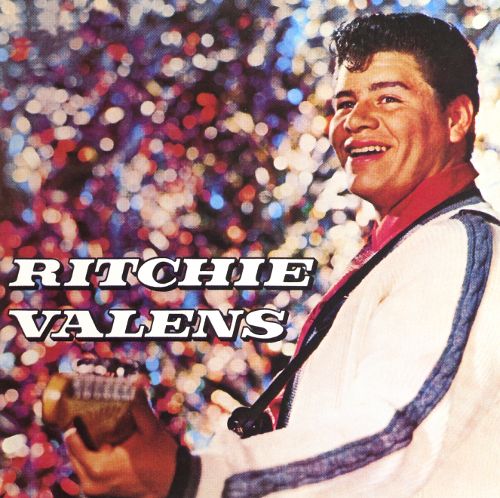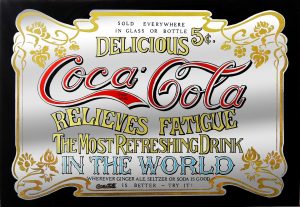It is the late 1950’s in southern California, and a young superstar named Ritchie Valens, whether he knows it or not, is about to change the culture of America forever. In a matter of eight months, the Hispanic student at San Fernando High School just became one of the biggest celebrity musicians of the day.1 After dropping out of school in order to record and tour full time, Richard Valenzuela was making phenomenal Rock N’ Roll music, both on stage and in the studio. While America quickly became obsessed with the undeniably talented teen, nothing could prepare them for his next release.
From the beginning, the odds were against young Richard. He was merely sixteen, and, as a young Latino, there were few opportunities for someone like him in the American mainstream music industry, let alone in Rock ’n Roll. He saw proof of this fact early in his career, facing prejudice and discrimination at every turn. He was even forced to change his name to Ritchie Valens in order to make it easier for his fans to pronounce—a compromise that gave way to controversy and anger from his family.2 Ritchie realized that, even though he was opposed to the changing of his name, it would be a smart move for him as a musician. But even after his family name was taken from him, he refused to let go of his heritage. In fact, it seemed that he tightened his grip.
Ritchie wanted to do something to pay tribute to his Latino culture. With the assistance of Bob Keane of Del-Fi Records, he decided he would combine the two worlds that he was now so heavily a part of, by turning the Spanish tune “La Bamba” into an upbeat rock song. Only knowing English, Ritchie had to learn the lyrics of the traditional Mexican folk song phonetically. After countless takes in the studio, he recorded the song on a two-track record with a second soon-to-be hit Oh, Donna.3
Ritchie released the track and promptly shook up America. Most people had no idea what the song was about, but, for one of the first times in modern music history, they didn’t care. The charismatic rhythm of the song combined with Ritchie’s unique voice; it was impossible to dislike it, and the song spread like wildfire, taking his career to new heights.
Seeing Ritchie perform was a spectacle only few Americans were graced with. His energy and impeccable guitar skills would engage the thousands of audience members from start to finish.4 While the crowd was swooning over every single song, there was nothing like that epic guitar riff that carries the tune of La Bamba.3 As soon as Ritchie’s guitar pick hit his strings, the fans simply could not contain themselves.

Unfortunately, Richard Valenzuela’s career was ended even quicker than it begun. Soon after his explosive rise to fame was sparked, and before he could finish his tour, Ritchie Valens was killed in a plane crash along with fellow artists Buddy Holly and The Big Bopper J.P. Richardson.6 The tragedy triggered nation-wide shock, and the day became known by many as “The Day The Music Died.”7
Although his life was ended much too early, perhaps it was this terrible fate that immortalized him in music history. His music and the rest of Valens’ amazing life inspired the film La Bamba, a timeless and classic film. Ritchie’s brave move in the release of “La bamba” inspired and enabled many other Hispanic artists to begin to make their way into the spotlight, making it much more than just a great song. We see the repercussions still today, through modern Latin Rock bands and all the sub-genres surrounding them, and will without a doubt continue to experience the fruits of the song for decades to come. Needless to say, American music and culture would not be the same without Richard Valenzuela’s audacious contributions.
- Encyclopedia of World Biography, 2004, s.v. “Ritchie Valens.” ↵
- Salem Press Biographical Encyclopedia, January 2017, s.v. “Ritchie Valens,” by Scot M. Guenter. ↵
- “‘La Bamba’ one of the 100 most important American musical works of the 20th century,” Broadcast Transcript. Weekend All Things Considered, NPR, July 15, 2000. ↵
- St. James Encyclopedia of Popular Culture, 2nd ed. “Valens, Ritchie (1941–1959),” Candida Taylor. ↵
- “‘La Bamba’ one of the 100 most important American musical works of the 20th century,” Broadcast Transcript. Weekend All Things Considered, NPR, July 15, 2000. ↵
- Robert Wright, “The Day The Music Died,” Aviation Safety, July 1, 2015. ↵
- “What Went Wrong On The Day Music Died?” Interview by Robert Siegel, Melissa Block, All Things Considered, NPR, February 3, 2009. ↵



163 comments
Soteria Banks
Your title is very good. I love music and i like learning about different genres and artist. Its sad to me that people who are Latina or Mexican or Hispanic have to struggle in the music industry. He shouldn’t have to change his name for others, artist should be their selves. People really need to open their arms for diversity. Music and art is what brings cultures together. Its sad that his life ended like that. tragic he was just on his way up.
Valeria Hernandez
Being of Hispanic heritage the song La Bamba was a well-known song in my household. I was definitely excited to see that an article was written on the man who created one of the most iconic vocals in the world. The article was a well-written article the article had a great flow to it allowing readers to engage in the career and creation of the man who created La Bamba.
Samuel Stallcup
Probably being one of the most recognizable Latin tunes in America’s history, I remember this being played at plenty of quinces and middle school parties. I like how you gave the history behind Ritchie and then were able to show how it affected the Latino culture. I think Ritchie definitely did create something to commemorate Latino culture. Really nice article!
Michelle Falcon
This was the second time I have read this article. I still believe this was a great article. I appreciate the fact that it showed us as readers some of the struggles not just Richard Valenzuela had to go through but also the struggles of a Latino cultured artists had to go though. However to also showed us if we stick to our roots and stay true to who we are we can change the world as we know it.
Mark Martinez
An extremely well written and put together article that I could not look away from. Just reading the name of the song beings nostalgia from when I was a kid. This style of music is what my mom would play for us growing up. I knew about his death in a plane crash just as Richard Valenzuela was making it big, but not the size of impact he made to the music world.
Erin Vento
Everyone loves La Bamba- the movie and song- and in turn, most people love Richie Valens. I really had no idea that he was asked to change his name, but I’m glad that he didn’t just abandon who he was after that and made one of the biggest bumps in tribute to his heritage. This article did a really great job in showcasing his successes before he unfortunately passed.
Crystalrose Quintero
I really appreciated the intro paragraph that set the tone for what was to be describe about Ritchie Valens career. It was so unfortunate to have read that artist like Richie Valens and buddy holly were lost all at once in a plane crash. This article was an interesting read and I enjoyed the visuals provided. The tone of the article was also vibrant which made the article more fun to read.
Alexandria Martinez
This was a good article about a great artist. La Bomba was surely a very important piece of music not only during that time but also in today’s world. Before reading this I did not realize that Ritchie’s name was actually Richard Valenzuela. I does make sense though, considering the time that he was in, that he was told to change in it order to have a chance at becoming more successful in a mainstream audience. It is sad that he was told to change it but perhaps it was the name change that allowed La Bomba to become such a hit and pave the way for future Hispanic and Mexican artists.
Andrea Chavez
It’s truly devastating as to how a young star quickly rose to fame, despite all odds placed against him, and ended with a very short lived career. Society was truly against him, but in a way his music gave way for the assimilation of two worlds, much like how Ricardo’s life was lived out (being from Southern California). As the article states, his emergence from the prejudice gave way for the wide-spread of the incorporation of Mexican-American culture.
Alejandra Chavez
It always makes me glad to see that a minority was able to make such a huge societal impact. Especially in an era where he was facing discrimination. Although he had to make a slight change to his name, he was still able to represent the Latin population through his music. It’s quite inspiring that such a young man was able to play his cards just right in the American music industry and was able to break barriers thus paving the way for more Hispanic artists to make it big. This was a very well written article.